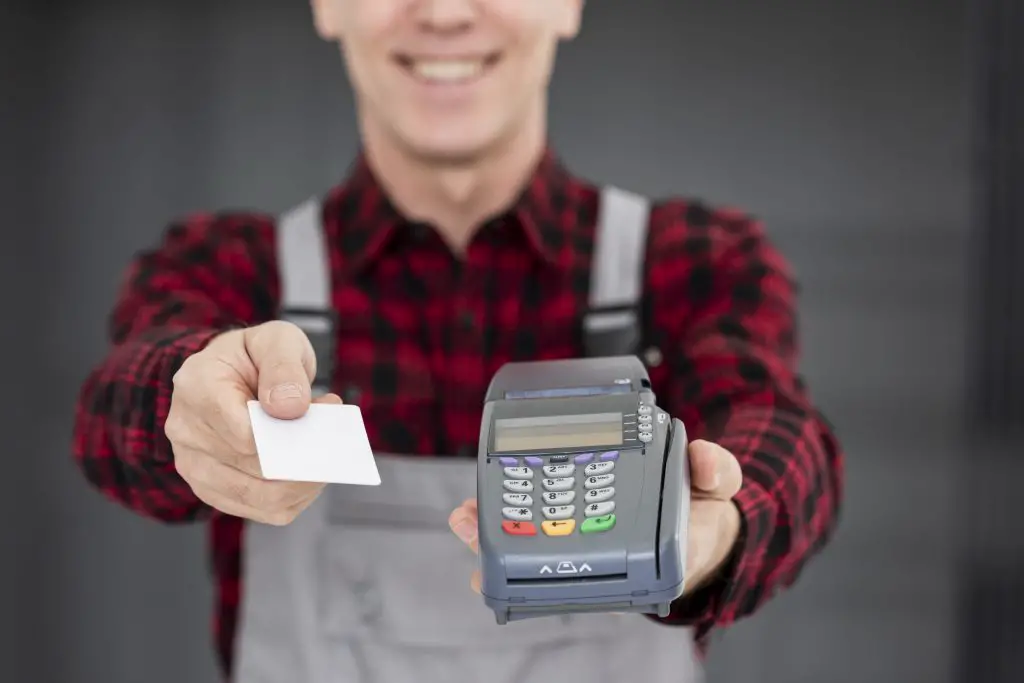Find out how automatic gratuity work in various industries. We offer a comprehensive guide to help you stay informed and make informed decisions regarding tipping practices. Our directory includes basics, benefits, drawbacks, legal considerations, and best practices.
Introduction
In various industries, automatic gratuities play an essential role in tipping practices. We have prepared this guide to explain what you need to know about automatic bonuses. Whether you are a customer or a service provider, understanding mechanical gratuity basics, benefits, drawbacks, legal considerations, and best practices is essential. We will explore this topic profoundly and equip you with the knowledge to navigate tipping scenarios effectively.
The Basics of Automatic Gratuity
In various industries, such as restaurants, hotels, and cruise ships, automatic gratuities are implemented in which a predetermined tip or service charge is automatically added to the bill. It does not leave it to the customer’s discretion as opposed to voluntary tipping.
Below are some key points to keep in mind about automatic gratuities:
- Definition: The definition refers to a predetermined tip or service charge added to a bill or transaction by establishments. It is usually calculated as a percentage of the total or fixed amount per person.
- Common Industries: It is common for automatic gratuity to be applied to large parties or groups in industries where tipping is customary, such as restaurants, hotels, and cruise ships.
- Factors Influencing Amount: Gratuities may vary based on several factors, including the establishment’s policy, the size of the group, the type of service received, and the establishment’s location.
- Inclusion on the Bill: The customer and the service provider benefit from automatic gratuities added to the bill or transaction separately. This ensures transparency and clarity for both parties.
Automatic gratuities are crucial to understanding as they affect customers and service providers. By understanding how automatic bonuses work, individuals will be better equipped to navigate tipping scenarios and ensure fair compensation for service providers.
Benefits and Drawbacks of Automatic Gratuity
A predetermined tip or service charge is automatically added to the bill or transaction. Let’s explore these benefits and drawbacks.

1. Benefits:
- Fair Compensation: Providing service providers with an automatic gratuity ensures they are compensated fairly, especially in establishments where tipping is uncertain or inconsistent.
- Convenience: The automatic gratuity process is convenient for customers because it eliminates the need to calculate and decide on tip amounts. It simplifies the payment process, especially for large groups or parties.
- Efficiency: By automating gratuities, service providers can focus on delivering quality service rather than relying solely on tips. This will enhance their efficiency and motivation to provide excellent service.
2. Drawbacks:
- Customer Dissatisfaction: The automatic gratuity could result in customer dissatisfaction if they perceive the additional charge as mandatory, regardless of the quality of the service they receive. This could negatively affect repeat business and customer loyalty.
- Reduced Incentive: It may be demotivating for service providers to go above and beyond, knowing that gratuities are automatically added since the extra effort may not directly increase tips.
- Lack of Flexibility: It is important to note that some customers prefer to make their own tipping decisions based on the service they are receiving. Automatic gratuities eliminate this flexibility, potentially leading to dissatisfaction among those who like to tip according to their judgment.
Customers and service providers can make informed decisions and adjust their expectations by understanding automatic gratuities’ benefits and drawbacks. Establishments must strike a balance between compensating service providers while maintaining customer satisfaction at the same time.
Legal Considerations and Regulations
The automatic gratuity system is subject to several legal considerations and regulations that establishments and customers should be aware of. The following are a few key points to bear in mind:
- Laws and Regulations: Depending on the country or region, specific rules and regulations about automatic gratuities may be understood to comply with them.
- Customer Notification: To ensure transparency and avoid surprises, the law often requires establishments to inform customers about including automatic gratuity on their bills. This notification may be a sign, menu, or written notice.
- Restrictions and Limitations: In some jurisdictions, automatic gratuities may be subject to restrictions or limitations, such as maximum percentage limits, disclosure requirements, or specific conditions.
- Service Charges vs Tips: Automatic gratuities may be considered a service charge rather than a tip depending on the location. This distinction may have consequences for tax purposes, distribution among staff members, and legal obligations.
- Gratuity Discretion: The automatic gratuity is not intended to replace voluntary tipping, as customers are still free to provide additional tips based on their satisfaction with the quality of service received.
To maintain transparency and avoid legal issues, establishments must comply with legal considerations and regulations surrounding automatic gratuities. On the other hand, the customer can ensure that their rights are protected while making informed decisions regarding tipping practices. To ensure compliance and a fair tipping experience, it is recommended that you become familiar with the specific laws and regulations applicable in your area.
Best Practices and Tips for Dealing with Automatic Gratuity
The best way to handle automatic gratuity situations is to be aware of and understand them. Here are some best practices and tips to help you handle mechanical gratuity situations effectively:
- Know the Policy: Understand the establishment’s automatic gratuity policy. Determine the percentage or amount added, the circumstances in which it is applied, and any special conditions or exceptions.
- Check the Bill: If you have any questions or concerns, do not hesitate to ask the staff for clarification. Please review your bill or receipt carefully to ensure the automatic gratuity charge has been accurately disclosed.
- Service Quality Matters: Although automatic gratuities are usually required, realizing that exceptional service deserves recognition is essential. If the service exceeded your expectations, consider adding a voluntary tip to acknowledge the excellent performance.
- Communicate and Address Concerns: You should communicate any concerns about the automatic gratuity charge or the service received to the establishment’s management. They may have a procedure in place to address customer feedback and correct any issues that may arise.
- Be Mindful of Local Customs: Ensure you know about local tipping customs and whether automatic gratuities are generally accepted. Adjust your expectations and tipping habits to ensure cultural sensitivity and avoid misunderstandings when traveling abroad.
- Advocate for Transparency: You can expect transparency in the automatic gratuity process. Encourage establishments to disclose the inclusion of automatic gratuities and explain how they are distributed.
Following these best practices and tips will allow you to confidently navigate automatic gratuity situations and ensure a fair and satisfactory tipping experience for both customers and service providers.
1. What are the pros of automatic gratuity?
By implementing automatic gratuity, servers are relieved of the task of calculating tips or waiting for customers to add gratuity to their bills. Instead of managing individual tips, restaurant staff are able to focus their time and effort on delivering exceptional customer service.
2. Should I tip on top of the automatic gratuity?
In certain restaurants, a no-tipping policy is in effect, where the provision of a livable wage for the staff is incorporated into the overall cost of the food. Alternatively, some establishments automatically include gratuity in the bill. If either of these situations applies, there is no need to add an additional tip on top of the stated price.
3. Who gets the automatic gratuity?
Typically, the auto gratuity represents a fixed percentage of the pre-tax total and is directly allocated to the servers and other staff members who offered service throughout the meal. It is important to note that many customers may not be aware that this charge is not considered a tip; rather, it is a service fee that businesses have the legal authority to include.
4. What is Autograt?
Mandatory tipping, also referred to as a mandatory gratuity or an autograt, is a predefined tip that is automatically included on the customer’s bill, without requiring the customer to determine the amount or being asked to do so.
5. Do I have to pay gratuity on a cruise?
Technically cruise lines cannot force you to pay gratuities, especially if you have a complaint or issue about the service you received on board. Gratuities on a cruise are not mandatory, but instead heavily suggested and added automatically.
Conclusion:
In conclusion, understanding automatic gratuity is essential for customers and service providers. Individuals can navigate tipping scenarios more quickly if they know the basics of automatic gratuity, including its definition, common industries, factors influencing the amount, and how it is included in the bill. Establishing fair compensation for service providers while maintaining customer satisfaction requires recognizing the benefits and drawbacks.

